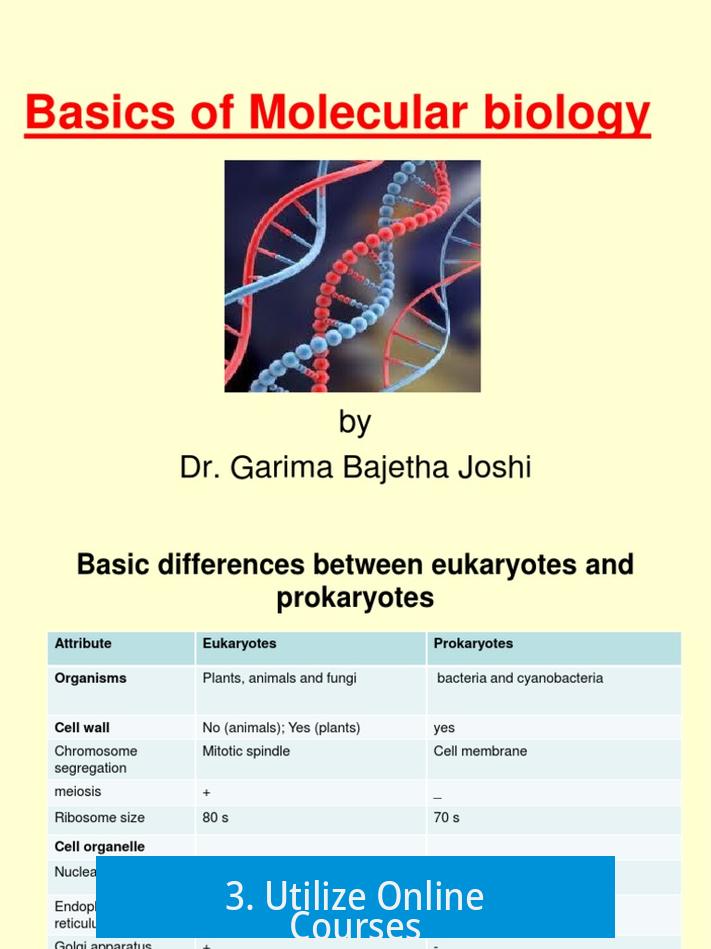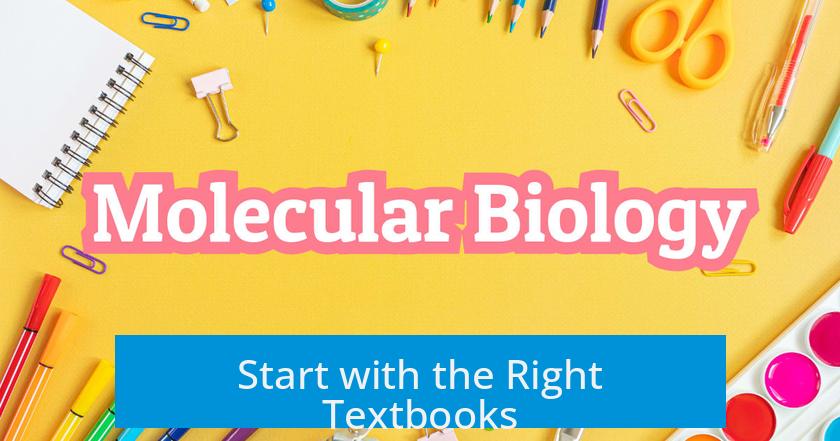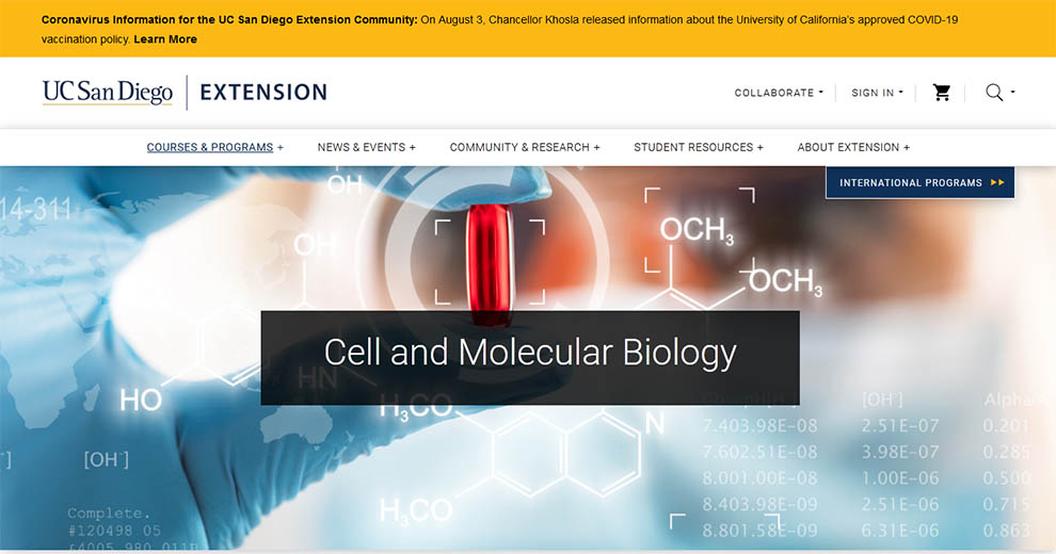Quickest Way to Learn Molecular Biology

The quickest way to learn molecular biology combines focused textbook study, hands-on lab experience, and targeted online resources. This approach balances theory with practice, allowing rapid skill development and deeper understanding.
1. Study Core Textbooks
Start with well-regarded textbooks to build a solid foundation. Key books include:
- Molecular Biology of the Cell by Bruce Alberts – Comprehensive yet accessible, this text covers essential concepts and features clear diagrams. It serves as a reliable reference to revisit regularly.
- Molecular Biology by Weaver – Focuses on landmark experiments and key contributors, offering historical context and insight into scientific methods.
- Recombinant DNA: Genes and Genomes – A Short Course – This shorter, narrative-style book is ideal for gaining understanding quickly.
- Lehninger Biochemistry – Offers introductory chapters that effectively link molecular biology to biochemical processes.
2. Engage in Laboratory Experience
Practical lab work accelerates learning. Observing real molecular biology techniques deepens knowledge and skills:
- Volunteering in a university molecular biology lab offers hands-on exposure to modern methods and experimental design.
- Experiencing processes like induced mutations and agar plate results bridges textbook knowledge with actual biological outcomes.
- Lab work introduces current research trends not covered extensively in formal textbooks.
3. Utilize Online Courses

Complement textbook and lab learning with online courses to review concepts and practice skills at your own pace:
- Platforms like Udemy offer beginner-friendly courses tailored to molecular biology principles and techniques.
- These resources provide flexible learning schedules and interactive content to reinforce understanding.
Summary of Key Points
- Begin study with comprehensive, trusted textbooks such as Molecular Biology of the Cell.
- Gain direct experience by working in a molecular biology lab to see techniques in action.
- Use online courses for supplementary instruction and review.
- This combined approach produces quicker, more thorough mastery of molecular biology.
Quickest Way to Learn Molecular Biology
What is the quickest way to learn molecular biology? To master molecular biology swiftly, combining quality textbooks, hands-on lab experience, and targeted online resources is your best bet. Learning theory alone won’t cut it—you need action, real experiments, and the right materials. Let’s break down how to accelerate your molecular biology journey efficiently and effectively.
Still wondering why some pick up molecular biology faster than others? It’s the blend of reading, practical application, and engaging with current research that accelerates understanding. While molecular biology may seem daunting, turning theory into practice significantly speeds up your grasp of concepts and techniques.
Start with the Right Textbooks

First things first: grab a good textbook that suits your learning style. Molecular Biology of the Cell by Bruce Alberts is a favorite starting point for many. It’s comprehensive yet readable. The author’s passion for the subject shines through, making complex topics approachable rather than overwhelming. Plus, the diagrams are clear and helpful.
Here’s a fun tip: Some learners swear by reading it as a bedtime story. Yes, you read that right! One student finds reading Molecular Biology of the Cell the perfect way to wind down—even if they’re still working on finishing it cover to cover.
If you want to dive into landmark experiments and the scientists behind them, Molecular Biology by Weaver highlights these historical milestones in a digestible format. It’s not just dry facts but the thrilling story of discovery.
Short on time? Consider Recombinant DNA: Genes and Genomes – A Short Course. This smaller, more narrative-style book condenses key lessons neatly, perfect for quick catches or focused study.
Also, for a strong intro into molecular biology rooted in biochemistry, Lehninger Biochemistry offers excellent foundational chapters. Bonus: It’s available free online at libgen.is, making it an accessible resource for every learner.
Get Practical: Laboratory Experience is Essential
Books alone don’t make molecular biologists. The real magic happens in labs. Imagine watching an agar plate change color due to induced mutations. That moment is pure “aha!” and far more insightful than any textbook explanation.
If you’re lucky enough to be near a university, volunteering in a molecular biology lab could be the fastest shortcut to deep understanding. You’ll witness techniques like PCR, gel electrophoresis, and DNA sequencing firsthand. Nothing substitutes for seeing these tools in action.
Why does lab work speed up learning so much? Because textbooks teach you theory, but labs introduce you to contemporary research methods and experimental nuances often missing from courses. You’ll get insight into the “why” and the “how” behind molecular biology’s cutting edge.
Utilize Online Courses and Resources
Online platforms like Udemy provide flexible courses designed for beginners. They often include video demonstrations of techniques, quizzes, and even community forums. These interactive elements make absorbing dense material more manageable and fun.
Combining Udemy courses with your textbooks and lab time forms a triple-threat approach to rapid learning. You read, you see, you do—that’s the recipe for retention and confidence.
Bonus Tips to Speed Up Molecular Biology Learning

- Consistent Short Sessions: Study in short bursts rather than marathon sessions. Even 20-30 minutes daily yields better retention.
- Teach What You Learn: Explaining concepts to a friend or writing summaries can solidify your grasp better than passive reading.
- Form Study Groups: Sharing knowledge and debating concepts with peers adds diverse perspectives and uncovers blind spots.
- Stay Updated: Subscribe to molecular biology news or journals to cultivate curiosity around current breakthroughs.
Addressing Common Hurdles
Feeling overwhelmed by jargon or complex pathways? Don’t worry, everyone hits that wall. Break topics into manageable chunks, and revisit challenging parts after a practical experiment or two. The visual and hands-on connection often illuminates confusing theory.
Also, don’t hesitate to use forums or ask your professors for help. Molecular biology thrives on collaboration—there’s no shame in seeking support.
Final Thoughts
In summary, the quickest way to learn molecular biology combines authoritative textbooks like Molecular Biology of the Cell with immersive lab experience and supporting online courses. This approach doesn’t just teach you facts—it builds skills, sparks excitement, and embeds knowledge deeply.
So next time you wonder how to learn molecular biology fast, remember: read smart, get hands-on, and make use of technology. As you mix these elements, molecular biology won’t just be a subject to study—it will become an adventure you actively participate in.
“If anyone needs Molecular Biology of the Cell 7th edition PDF, I can send it to you.” If you have access, grab this resource to kickstart your journey!
Ready to dive in? Pick a textbook, find a lab, and enroll in an online course today. Molecular biology is complex but endlessly rewarding once you unlock its secrets. Who knows? You might be the next scientist unraveling the codes of life.
What textbook is best for beginners in molecular biology?
“Molecular Biology of the Cell” by Bruce Alberts is ideal. It offers clear explanations with helpful diagrams. It covers key concepts without being too hard to read.
How can lab experience speed up learning molecular biology?
Working in a biology lab exposes you to real experiments. It helps you understand techniques and research beyond theory. Watching results like color changes in bacteria makes concepts clearer.
Are there concise books to learn molecular biology quickly?
“Recombinant DNA: Genes and Genomes – A Short Course” is a smaller, narrative-style book. It covers essential topics without overwhelming detail.
Can online courses help with fast learning of molecular biology?
Yes, platforms like Udemy offer beginner courses. They provide structured lessons to grasp basics efficiently.
What role do landmark experiments play in learning molecular biology?
“Molecular Biology” by Weaver focuses on landmark experiments and key scientists. Understanding these helps grasp how the field developed and why methods matter.





Leave a Comment